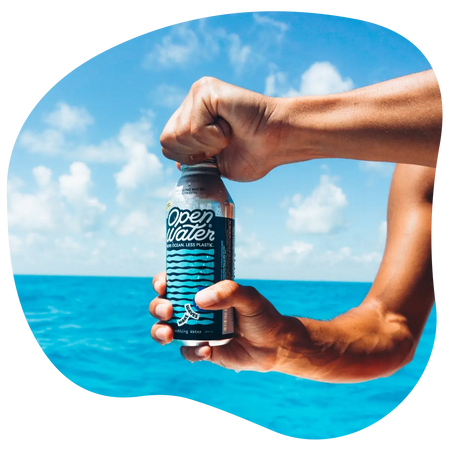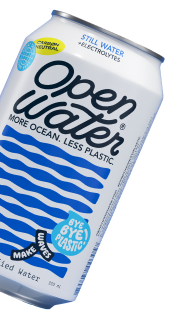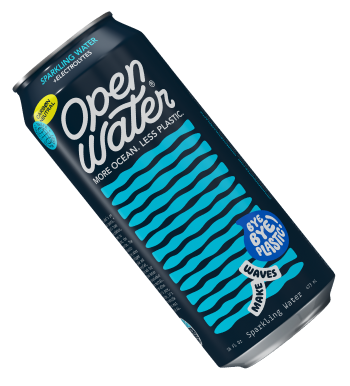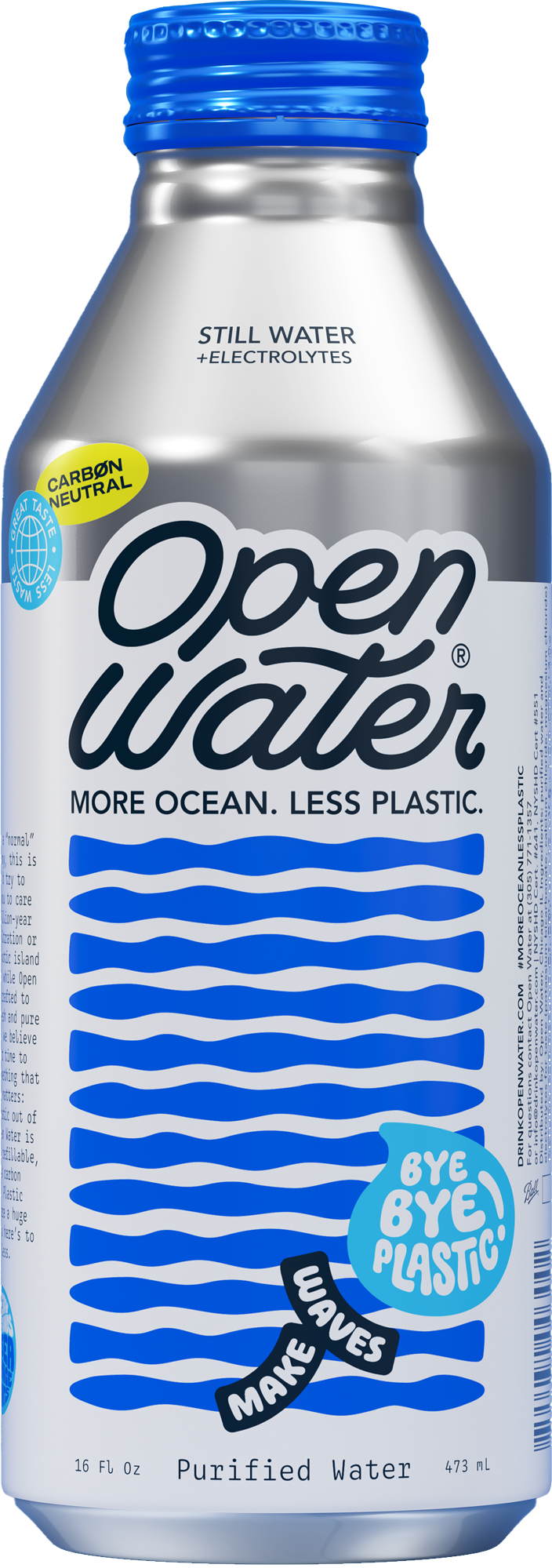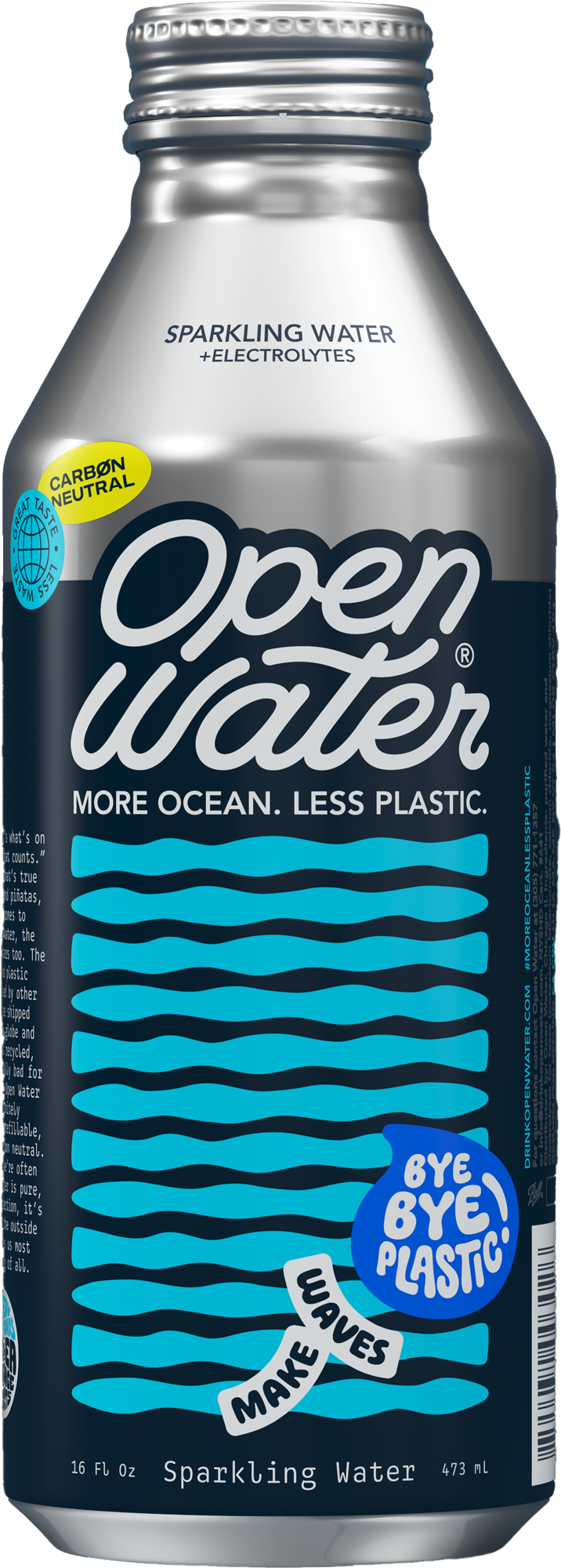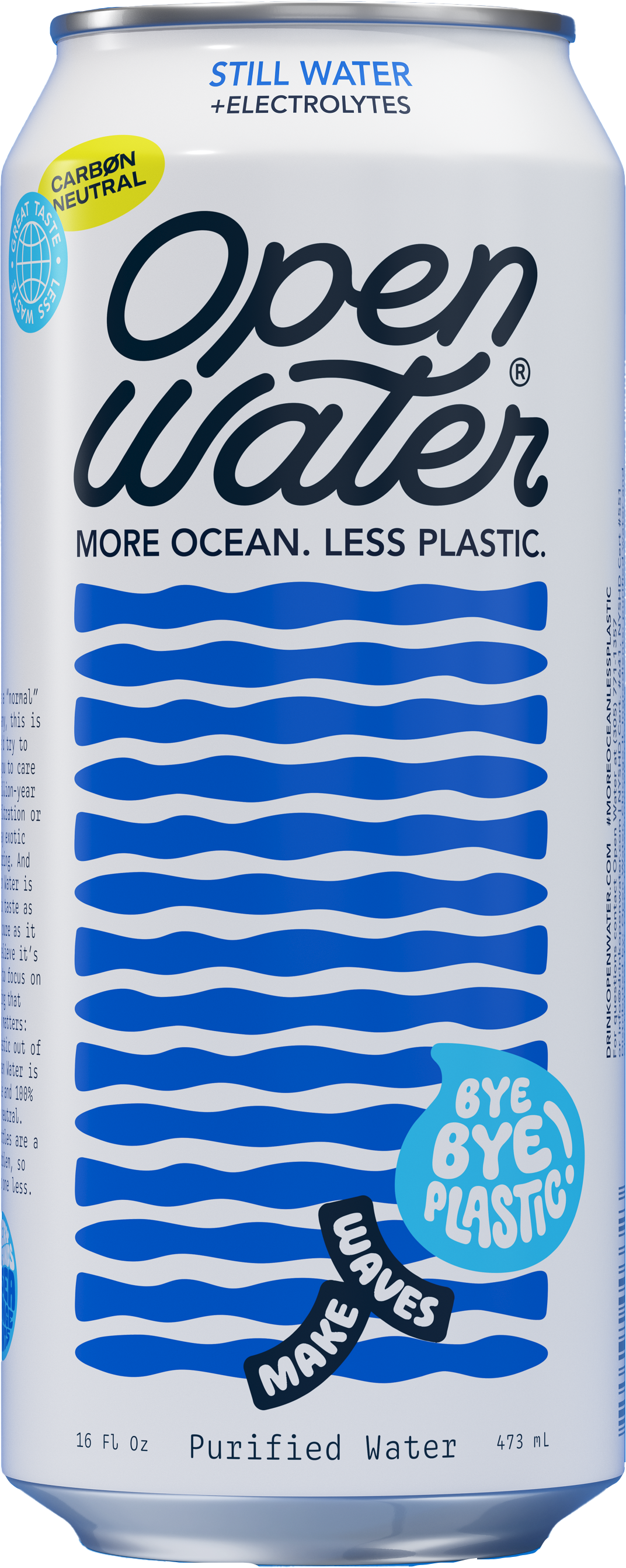the cold hard truth
ALUMINUM
VS CARTONS
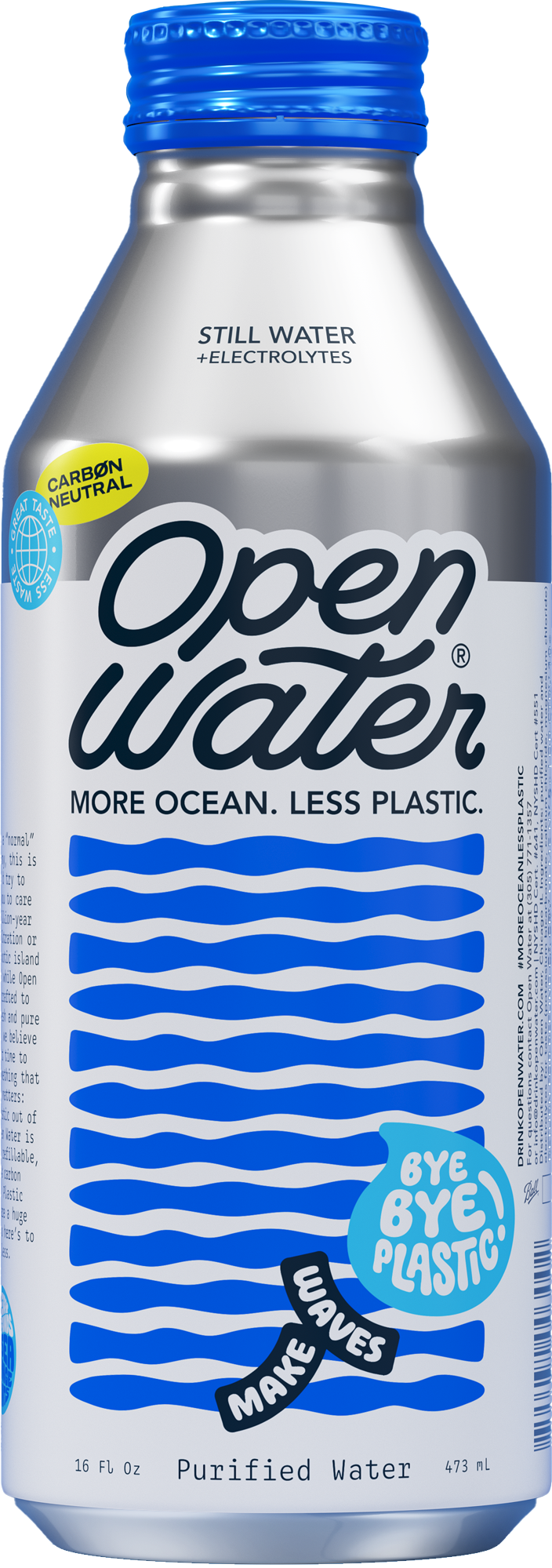
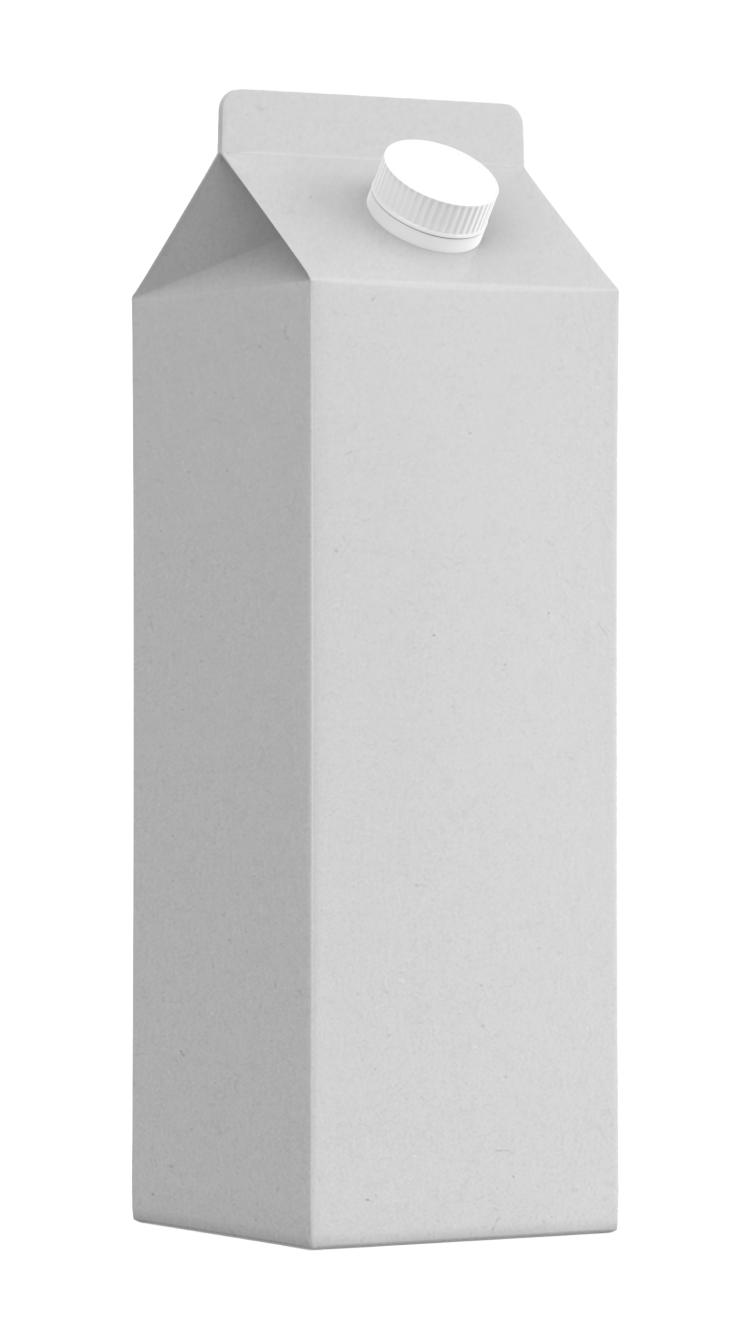
45%
#1, Most Recycled Beverage Packaging (aluminum)
20%
LOWEST, Recycling Rate
93%
of recycled cans go back into making another can
0%
of recycled cartons go back into making another carton
<1g
plastic
Up to 9g
Plastic in each carton (point of reference: a grocery bag is 5.5g)
73%
avg recycled aluminum in every Open Water
0%
recycled post-consumer content in every carton
myth
The plastic used by cartons is not harmful because it is “made from plants.”
TRUTH: Plant-based plastic is chemically identical to plastic made with fossil fuels.
learn more
OUR IMPACT

Well... what about emissions?
Open Water measures, reduces, and offsets its emissions every year.
Learn More
So…what about cartons?
They’re recycled less often than plastic bottles. Here’s the cold, hard truth.
Learn More


So... where does the water come from?
Sourced as locally as possible to minimize transport emissions.
Learn Morebye, bye plastic
SHOP OPEN WATER
Ultra-purified, electrolyte-packed canned water in BPA-free aluminum packaging.
